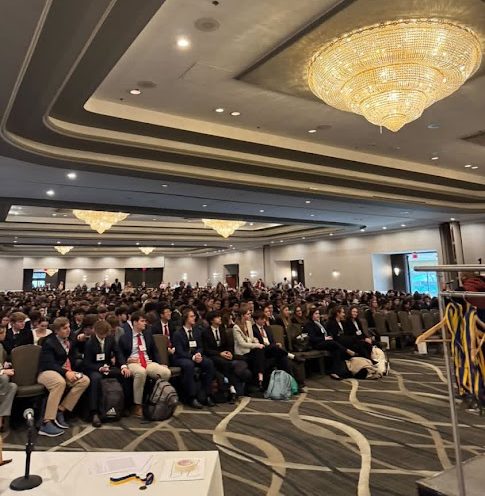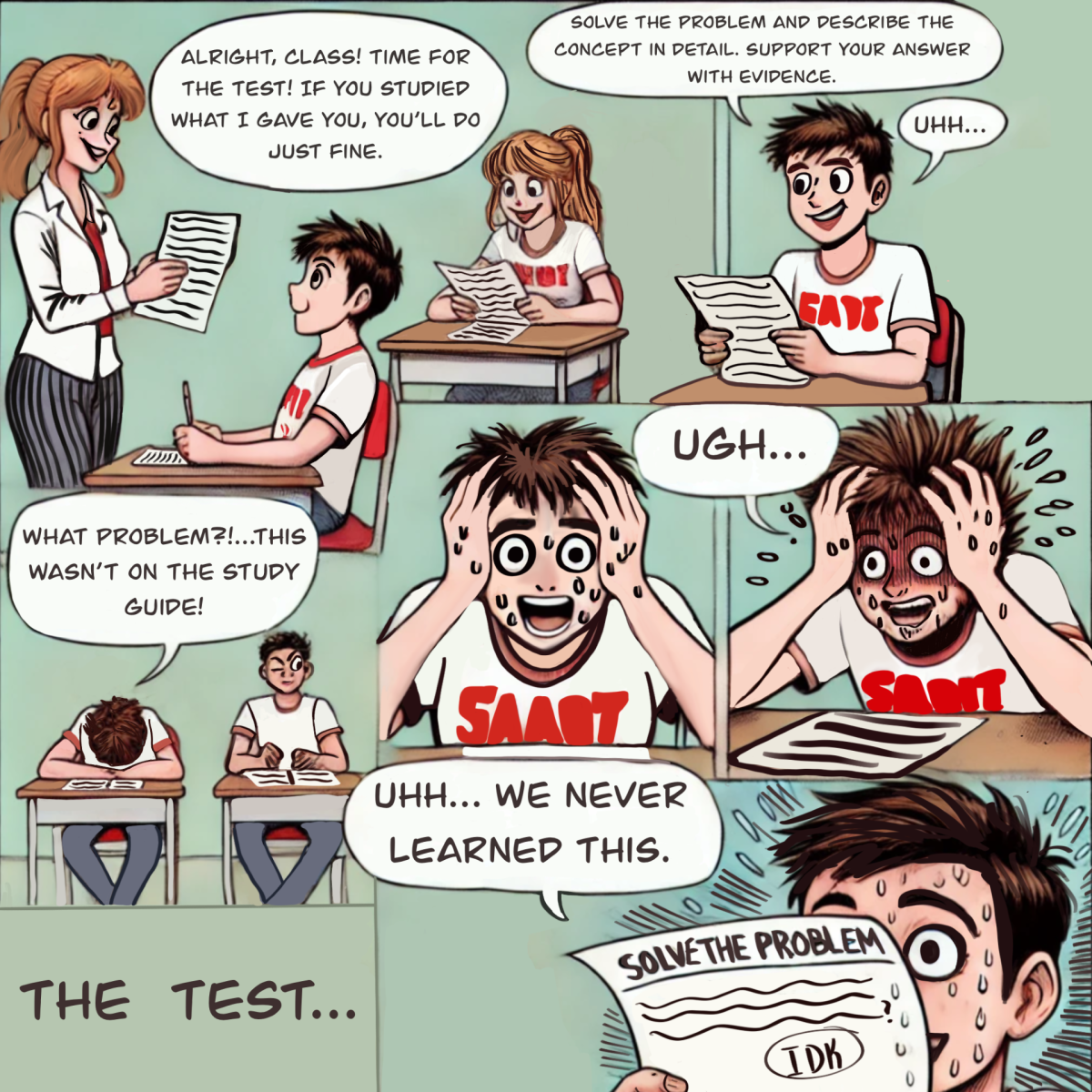The Never-Ending Grind: The Work just never ends
From a young age, we are all raised with the idea that if we work hard, we can achieve anything.
June 12, 2017
The American Dream for affluence starts early; what many refer to as the “grind.” The grind is the relentless process of pushing yourself to the brink of your limits in pursuit of The Dream. After elementary school, where you learn the basics of reading, writing and playing with others, it begins. In middle school, it slowly builds. Each year, more is asked of each student. Weekends with family are overtaken by homework. Teachers induce students to work ever harder, offering extra credit for extra work and increasingly reminding them that high school will require even more work. Friends and family gently prod them to engage in extracurricular activities. “After all, you’ll have to be involved in extracurriculars if you want to get into a good college,” they say.
The grind demands that you proceed. The Dream demands it too.
High school sees the grind come in a form that is both familiar and foreign. The grind you recognize, its outsized proportions are a stranger. In high school, it intensifies in earnest. You join the chess club, the debate team and a sport for good measure. Gone are the opportunities for extra credit. The amount of homework expands exponentially. The amount of academic and extracurricular demands take a toll. Students are stressed. Yet, The Dream requires that you persist; struggle is simply a part of the grind. In time, students take courses in preparation for the PSAT’s, ACT’s, and SAT’s; notches on the key which open the door to the “right” college. For a few, after nearly a decade of wishing, working, grinding and dreaming, the acceptance letter from a dream college arrives in the mail. Now, it’s time to relax, right?
Hard work and determination may have propelled you this far, but the grind has yet to be completed. College comes with its own challenges. In order to get the “right” job, you will have gain acceptance to the “right” graduate school. Graduate school leads to the work force. In the workforce, there remains the need for promotion. And so it goes. A lifetime spent in the grind, in hopes of a dream that never comes to fruition.
According to the Centers for Disease Control (CDC), the average rate of suicide among college-level adults has doubled in the last two decades. The CDC also estimated that 1 in 20 Americans meet the criteria for clinical depression. Additionally, a 2016 Gallup poll estimated that only one half of Americans are genuinely content with their personal lives. These statistics represent the ultimate cost of the grind; the result of the lessons of unbalance children learn from an early age.
Since the moment students arrive in primary school, they are taught a simple lesson: work hard, and anything you put your mind to can become reality. Young minds are told that rigorous determination, not balance, is the key to success. Given the level of distress these lessons engender, one is left to wonder whether the results could be considered “success” at all.
In encouraging students to pursue a dream, parents and teachers may sow the seeds of nightmare. Nearly from the beginning, unbalance is encouraged. An unbalanced, achievement- driven lifestyle is suggested as the only realistic path to success. Without instilling the idea of balance, the grind never ends. It is only with balance that The Dream can truly exist.







